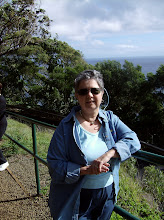Boomer women are at risk for having inadequate retirement savings, mainly because, like most women, we’ve been in and out of the workforce managing family life while we juggled career milestones along the way. Women also are notorious for being slow to take advantage of the 401 (k or b) retirement savings products when they were introduced, so our net savings in IRAs, work retirement accounts and pensions are generally inadequate.
Boomer women are at risk for requiring a disproportionate amount of long-term care since women routinely outlive men, and boomer women will be no different, our numbers as we reach our 80s may overwhelm the healthcare resources we have come to depend upon in the USA. We’ll take up more long-term care beds and, because many of us did not marry and even among those who did, many did not produce children, we may be lacking a family caregiver who will oversee our health needs as we age.
What’s a woman to do? Harvard researchers recommend several strategies that I, for one, have begun to take to heart. They remind women now approaching retirement to consider:
- Know what your Social Security income projections. Each year, the government sends an update indicating what your retirement benefits from Social Security are likely to be. Remember those (downward) income adjustments for being widowed or divorced women can be significant. Women need to educate ourselves and plan accordingly
- Work a few years longer. Extending worked years by even five years can push up Social Security benefits, increase your time for making considerable retirement contributions and sustain health insurance coverage until Medicare is available.
- Save more retirement money. Utilize the generous retirement contribution rules for those over 50. Put away as much as your income will allow while there is no penalty for doing so and while your funds can still gain interest.
- Own your home. By adding just one additional payment each year, you can shave a decade off the length of your mortgage. Whether you purchased early or late in life, this one asset can provide housing, much needed capital or simply equity for a reverse mortgage as you age.
For more information on what you can do to protect your financial future, see this report available on line:
Baby Boomer Women Secure Futures or Not?
Edited By Paul Hodge, Chair, Global Generations Policy InstituteDirector, Harvard Generations Policy Programhttp://www.genpolicy.com/
Available at: http://www.genpolicy.com/freecopy/
